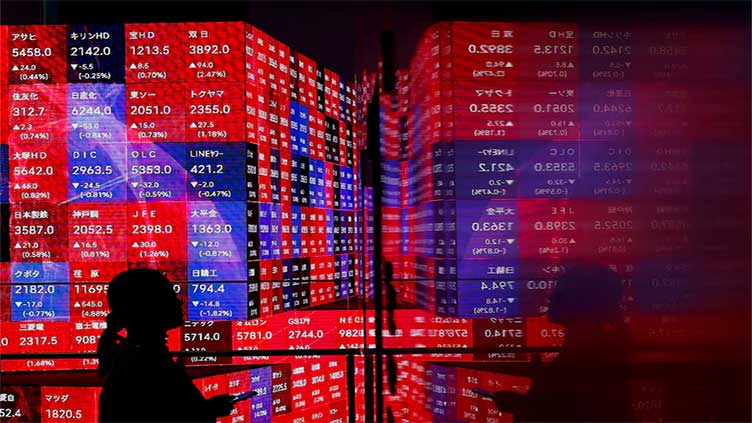Stocks, Wall St futures firm as more easing imminent

Business
China's central bank lowered its 14-day repo rate by 10 basis points, after disappointing markets
LONDON/SYDNEY (Reuters) – World stocks stuck around record highs as investors turned their attention to China and Switzerland as the next central banks to add vim to the global economy with rate cuts after last week's decisive move by the US Federal Reserve.
Ahead of US inflation data that traders expect to confirm forecasts for more easing there, China's central bank lowered its 14-day repo rate by 10 basis points, a couple of days after disappointing markets by not cutting longer-term rates.
MSCI'S broad index of world stocks held steady after two weeks of gains and its gauge of Asia-Pacific shares outside Japan added 0.3% after bouncing 2.7% last week. Singapore's main index climbing to its highest since late 2007.
Stock markets in Tokyo were closed for a holiday but futures trading suggested these recent laggards would join the party with Nikkei contracts were trading at 38,510 compared to a cash close of 37,723.
The index rallied 3.1% last week as the yen eased and the Bank of Japan (BOJ) signalled it was in no rush to tighten policy further.
Markets were still basking in the afterglow of the Federal Reserve's half-point rate cut, with futures implying a 50% probability it will deliver another outsized move in November. .
But Christoph Schon, multi-asset strategist at Simcorp, warned a recession in the U.S. might still be imminent and noted that the last two times the Fed started with a 50 bps cut was in 2008 and 2001, which were years of severe downturns.
"Every time we hear this time is different and maybe this time it is, but there is now growing concern," he said.
Conversely, a downward shift in rate cut expectations caused by economic data coming in surprisingly strong would likely result in share prices falling too, he said.
Not much caution was evident in markets on Monday, however, as Europe's Stoxx share index held steady and futures trading indicated Wall Street was set for a strong session.
S&P 500 futures firmed 0.3% and Nasdaq futures added 0.6%. The S&P is up 1% so far in September, historically the weakest month for stocks, and has gained 19% year-to-date to reach all-time highs.
This came after more than 20 billion shares changed hands on U.S. exchanges on Friday, the busiest session since January 2021.
The importance of U.S. monetary policy was "hard to overstate, given the Fed's role in USD liquidity conditions worldwide," Barclays economist Christian Keller said.
MORE CUTS
Market exuberance may also depend on what the Fed's preferred inflation gauge, the core personal consumption expenditures (PCE) show on Friday. Analysts expect a 0.2% month-on-month rise taking the annual pace to 2.7%, while the headline index is seen slowing to just 2.3%.
This matches a more benign inflation backdrop worldwide.
The Swiss National Bank meets Thursday and markets are fully pricing a quarter-point cut to 1.0%, with a 41% chance it will ease by 50 basis points.
Sweden's central bank meets on Wednesday and is also expected to ease by 25 basis points, again with some chance it might go larger.
The coming week also includes surveys on global manufacturing, US consumer confidence and durable goods.
One bank not easing is the Reserve Bank of Australia (RBA) which meets on Tuesday and is considered almost certain to hold at 4.35% as inflation proves stubborn.
In currency markets, the dollar edged up 0.1% to 144.30 yen , having bounced 2.2% last week from a 139.58 low. The euro gained almost 3% last week to reach 161.09 yen, and on Monday it held firm on the dollar at $1.1160.
The yield on the benchmark US 10-year Treasury, which sets borrowing costs worldwide and moves inversely to the security's price, was barely moved at 3.745%.
But in one sign of recessionary fears, gold traded at an all-time peak of $2,630.93 an ounce.
Net long positions in Comex gold futures hit their highest level in four years last week.
Oil prices also weakened, despite tensions in the Middle East as Israel struck Hezbollah targets, and following a rally last week.
Brent eased 0.2% lower to $74.35 a barrel, while US crude also down 0.2% to $70.89.


